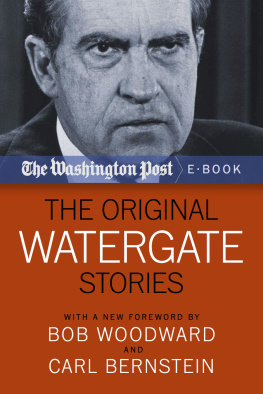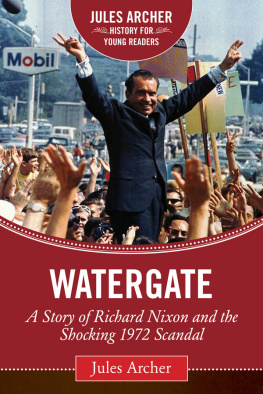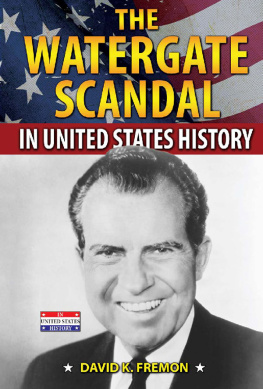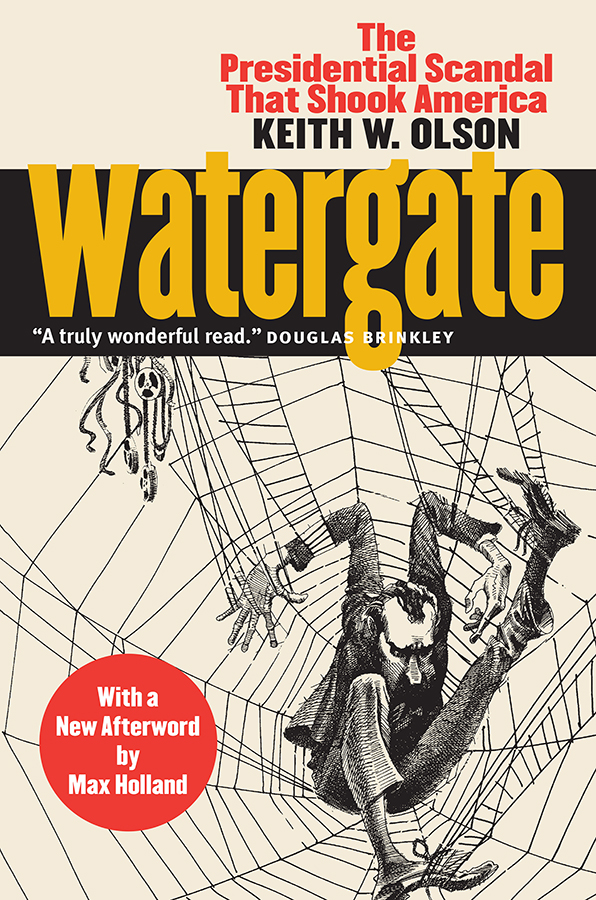Keith W. Olson - Watergate: The Presidential Scandal That Shook America?with a New Afterword by Max Holland
Here you can read online Keith W. Olson - Watergate: The Presidential Scandal That Shook America?with a New Afterword by Max Holland full text of the book (entire story) in english for free. Download pdf and epub, get meaning, cover and reviews about this ebook. year: 2016, publisher: University Press of Kansas, genre: Politics. Description of the work, (preface) as well as reviews are available. Best literature library LitArk.com created for fans of good reading and offers a wide selection of genres:
Romance novel
Science fiction
Adventure
Detective
Science
History
Home and family
Prose
Art
Politics
Computer
Non-fiction
Religion
Business
Children
Humor
Choose a favorite category and find really read worthwhile books. Enjoy immersion in the world of imagination, feel the emotions of the characters or learn something new for yourself, make an fascinating discovery.

- Book:Watergate: The Presidential Scandal That Shook America?with a New Afterword by Max Holland
- Author:
- Publisher:University Press of Kansas
- Genre:
- Year:2016
- Rating:3 / 5
- Favourites:Add to favourites
- Your mark:
Watergate: The Presidential Scandal That Shook America?with a New Afterword by Max Holland: summary, description and annotation
We offer to read an annotation, description, summary or preface (depends on what the author of the book "Watergate: The Presidential Scandal That Shook America?with a New Afterword by Max Holland" wrote himself). If you haven't found the necessary information about the book — write in the comments, we will try to find it.
The 1972 break-in at Democratic National Headquarters in the Watergate Hotelby five men acting under the direction of a Republican presidents closest aides and his staffcreated a constitutional crisis second only to the Civil War and ultimately toppled the Nixon presidency. With its sordid trail of illegal wiretapping, illicit fundraising, orchestrated cover-up, and destruction of evidence, it was the scandal that made every subsequent national political scandal a gate as well.
A disturbing tale made famous by Washington Post reporters Bob Woodward and Carl Bernstein in All the Presidents Men, the Watergate scandal has been extensively dissected and vigorously debated. Keith Olson, however, offers for the first time a laymans guide to Watergate, a concise and readable one-volume history that highlights the key actors, events, and implications in this dark drama. John Dean, John Ehrlichman, H. R. Haldeman, G. Gordon Liddy, John Mitchell, Judge John Sirica, Senator Sam Ervin, Archibald Cox, and the ghostly Deep Throat reappear herein a volume designed especially for a new generation of readers who know of Watergate only by name and for teachers looking for a straightforward summary for the classroom.
Olson first recaps the events and attitudes that precipitated the break-in itself. He then analyzes the unmasking of the cover-up from both the presidents and the publics perspective, showing how the skepticism of politicians and media alike gradually intensified into a full-blown challenge to Nixons increasingly suspicious actions and explanations.
Olson fully documents for the first time the key role played by Republicans in this unmasking, putting to rest charges that the liberal establishment drove Nixon from the White House. He also chronicles the snowballing public outcry (even among Nixons supporters) for the presidents removal. In a remarkable display of nonpartisan unity, leading public and private voices in Congress and the media demanded the presidents resignation or impeachment. In a final chapter, Olson explores the Cold War contexts that encouraged an American president to convince himself that the pursuit of national security trumped even the Constitution.
As America approaches the thirtieth anniversary of the infamous Watergate hearings and the overreach of presidential power is again at issue, Olsons book offers a quick course on the scandal itself, a sobering reminder of the dangers of presidential arrogance, and a tribute to the ultimate triumph of government by the people.
Keith W. Olson: author's other books
Who wrote Watergate: The Presidential Scandal That Shook America?with a New Afterword by Max Holland? Find out the surname, the name of the author of the book and a list of all author's works by series.







